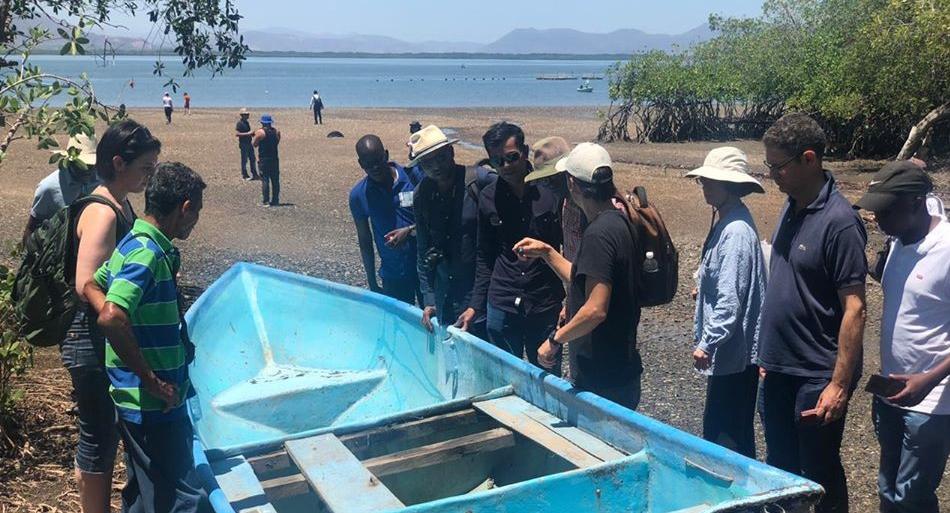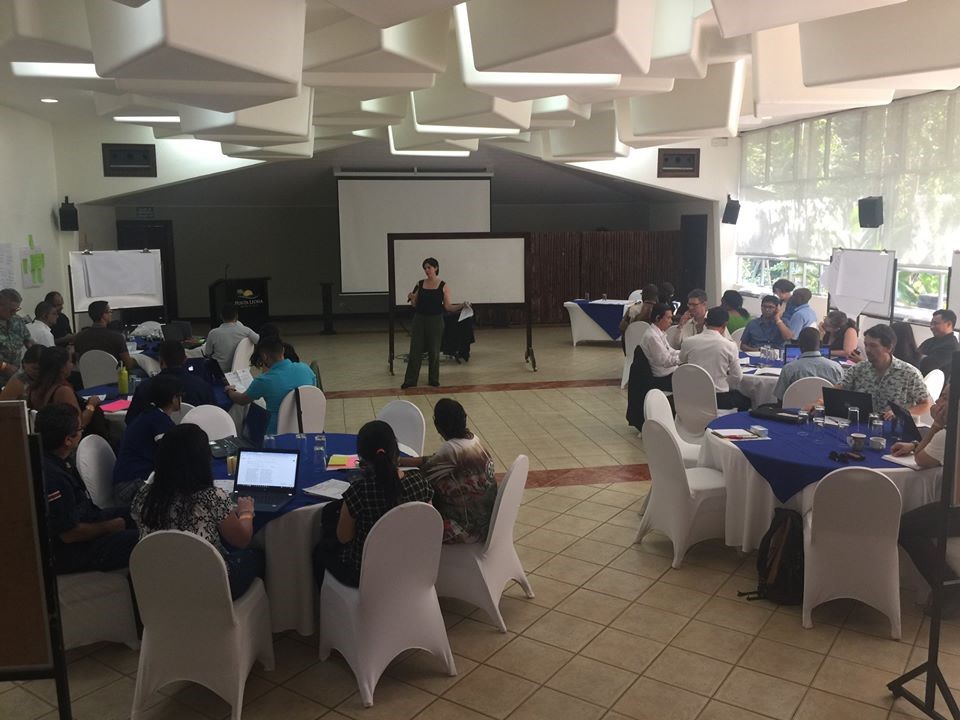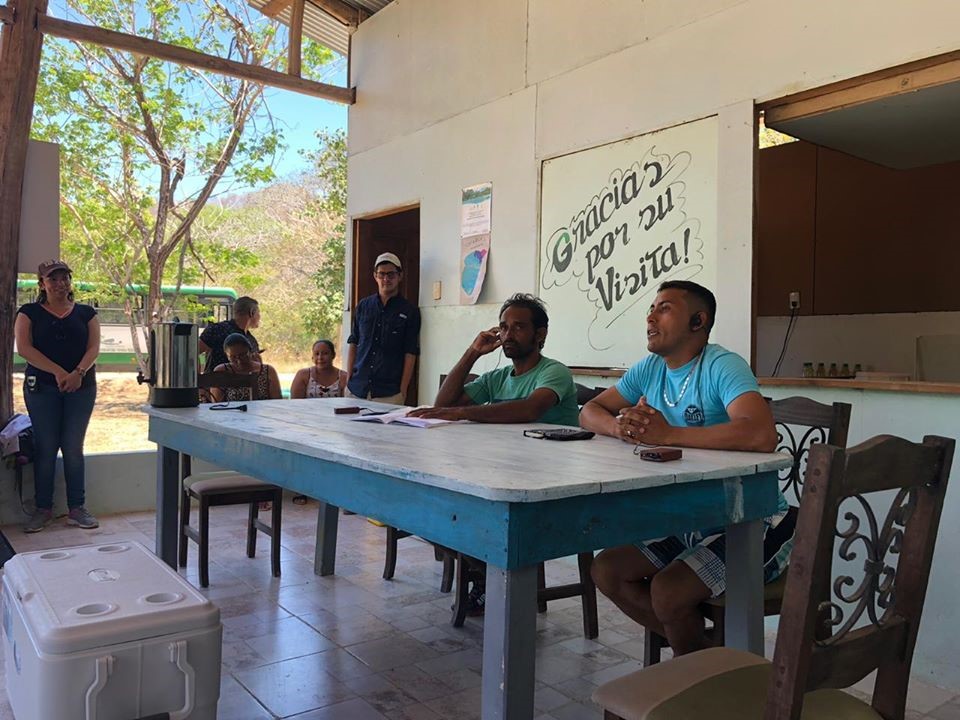Costa Rica Begins Process to Develop Environmental Accounts of Aquatic Resources

Note: This article is cross-posted from Costa Rica's Ministry of Environment and Energy. The original (in Spanish) can be found here.
MINISTRY OF ENVIRONMENT AND ENERGY · THURSDAY, 14 MARCH 2019
The importance of data generation and the development of methodologies to quantify aquatic resources was analyzed in the framework of the "Training Course: Accounting for Fisheries Resources", organized by the International Institute for Environment and Development (IIED), the Ministry of Environment and Energy of Costa Rica, the Ministry of Agriculture and Livestock, and the member entities of the National Council of Environmental Accounts.
 Representatives from different countries from Africa, Asia and Latin America participated in this activity; from international organizations such as IIED, Conservation International, the World Bank and the United Nations; and from national institutions such as Costa Rican Institute for Fisheries and Aquaculture (INCOPESCA), National System of Conservation Areas (SINAC), National Center for Geo-Environmental Information (CENIGA), Coastal Protection (Gardacostas), National Institute for Statistics and Census (INEC), Ministry for National Planning and Economic Policy (MIDEPLAN), and the Academia.
Representatives from different countries from Africa, Asia and Latin America participated in this activity; from international organizations such as IIED, Conservation International, the World Bank and the United Nations; and from national institutions such as Costa Rican Institute for Fisheries and Aquaculture (INCOPESCA), National System of Conservation Areas (SINAC), National Center for Geo-Environmental Information (CENIGA), Coastal Protection (Gardacostas), National Institute for Statistics and Census (INEC), Ministry for National Planning and Economic Policy (MIDEPLAN), and the Academia.
The focus of this training was to analyze strategies to improve the way in which small-scale fisheries are accounted for in national statistics, following the framework of the System of Environmental-Economic Accounting (SEEA). For this, strategies to improve data collection and understand how this information can be interpreted to strengthen public policies at the national and local level and improve the quality of the contributions of the different social actors in the value chains at the local, national and international levels were analyzed. An exploration was conducted on what is needed to apply the methodology in real-life conditions of data scarcity, and how to make data collection, understanding and use a truly inclusive process that also benefits small scale fishing operations.
The training was developed after the International Conference: environmental accounts towards an inclusive blue economy held on 11 March 2019.
On 12 March the group made a field visit to the Island of Chira, where the communities of Palito and Montero were visited. Participants had the opportunity to share with fishers' groups and local authorities their views on small-scale fisheries, the problems they face and the opportunities that exist to improve their conditions. The participants also talked with INCOPESCA authorities about the channels used to communicate with fishing communities and how these channels can be improved to gather information to develop environmental accounts.
 The Island of Chira is the most populous island in Costa Rica. Located in the Gulf of Nicoya, it has only 43 km2.It is covered with 1100 hectares of mangroves, and the majority of its 2,000 inhabitants depend on fishing, shellfish harvesting and activities associated with marine and coastal resources.
The Island of Chira is the most populous island in Costa Rica. Located in the Gulf of Nicoya, it has only 43 km2.It is covered with 1100 hectares of mangroves, and the majority of its 2,000 inhabitants depend on fishing, shellfish harvesting and activities associated with marine and coastal resources.
Due to the importance of these resources, the fishing communities of Palito and Montero voluntarily created in 2009 the first Marine Responsible Fishing Area in the country. The area covers 619 hectares and only allows the use of rope and hook. Most fishing is near the coast in small boats of less than 5 meters, with one or two fishermen.
On 13 and 14 March, two intense days of training workshop were held, in which the participants learned and shared their experiences on the accounting of natural capital, the conceptual framework of the blue economy, the production of statistics for fishing and the accounting for artisanal fisheries in a context of scarce information.
The representatives of the different countries had the opportunity to make presentations on their local realities and to share their experiences in group exchange activities. Interesting presentations were also made by experts from international organizations and the Government of Costa Rica.
As a result of the activity, the representatives of the Costa Rican institutions committed themselves to form a technical group to support the National Council of Environmental Accounts in the development of the aquatic resource account for Costa Rica, which will have the support of organizations related to the organization of this training.
